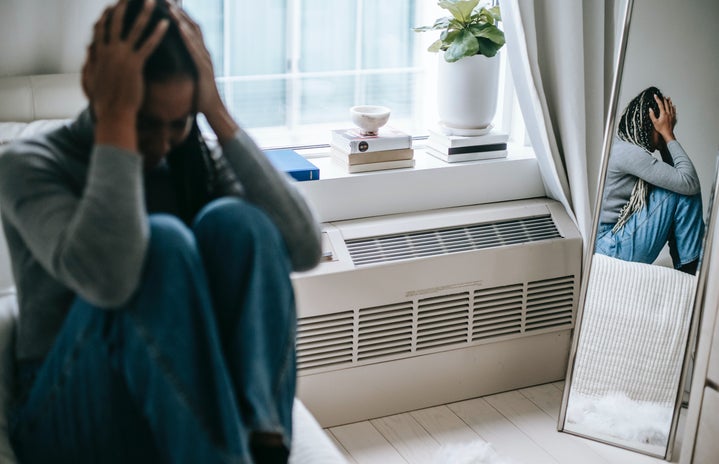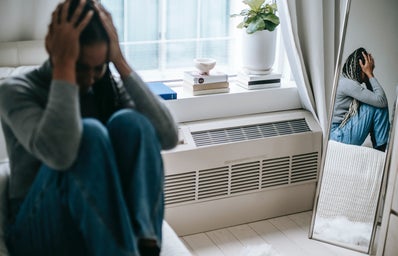Imagine after studying until midnight you decide to finally go to bed. You wake up the next morning with a small discomfort in your neck leading up to your head. You brush it off, take some Tylenol and hope for it to go away before your first class. While getting ready for the day, your ache slowly starts spreading throughout your head causing a pounding sensation. You become nauseous and dizzy because the pain has become unbearable. After taking a prescribed migraine medicine, you decide you can’t make it to your first class and may have to cancel the rest of your activities for the day. As someone who suffers from excruciating migraines, this experience has happened to me multiple times throughout my first year of college. Here are my tips that I follow to prevent and deal with migraines as a busy and studious college student. Please understand I am not a doctor. I am sharing what I personally do as a student who struggles with migraines and providing a small number of prevention tips my neurologist has given me.
Prevention
- Blue Light Glasses
-
Using blue light glasses while working on my laptop reduces the strain on my eyes. This reduction of strain allows for my non stress related head tension to go away. Blue light glasses are especially helpful during busy studying seasons such as midterms and finals throughout the year.
- Increase Water Intake
-
Increasing my water intake helps reduce the number of migraines I have in a month. I can feel an increase of headaches and migraines during the weeks when I do not actively drink water throughout each day. I try to drink half an ounce to an ounce of water for each pound I weigh.
- Sleep Routine
-
Basing my bedtime off of the next day’s wake up time has been very helpful in reducing my migraines throughout this semester. I try to get at least nine hours of sleep every night so if I wake up at 7 a.m., I try to be in bed and asleep by 10 p.m. People who deal with migraines have more sensitivity than others. My neurologist said, “Migraine brains need routine. It can’t keep up if the time range changes daily.” I always try my hardest to have an equal amount of sleep every night.
Dealing with Migraines
- Cold Washcloth/Freezer Pack
-
One of my mom’s main tips is to use a cold washcloth or freezer pack on the back of my neck. As my migraines have gotten worse, I usually end up using multiple freezer packs on the back of my neck and top of my head. The placement of the cold temperature is usually based on where my migraine stems from. If I have a headache coming from my eyes, I put a cold pack on my eyes.
- Dark Room
-
The hardest thing to deal with when having a migraine is light sensitivity. When I have a migraine at home, I always turn off every light in the room, put my phone away, use black-out curtains and cover up the light from electronics with black electrical tape. Having a completely dark room eases the strain on my eyes, reduces the tension in my head and allows me to fully relax.
- Quiet Room
-
White noise helps many people fall asleep every night, but with my migraines, that sound makes it worse. The constant sound of a fan adds pressure and stress to my head. Creating a quiet environment with no noise allows you to rest without distraction and gives your brain a break.
- Medicine
-
After explaining my symptoms to my neurologist, she prescribed me Nurtec ODT which treats migraines and prevents them. My prescription has definitely been a life-saver over the past couple of months. However, there have been times when I have run out of my prescription and need a quick over-the-counter fix that I can rely on. This medicine is the Extra Strength Tylenol Dissolve Packs. I found out about this medicine before getting my tonsillectomy and used it during recovery. This medicine is easy to take as soon as I feel a migraine coming on because I don’t need water to take it. For me, the dissolvable powder is quick acting, tastes good and gets the job done if I catch my symptoms before my migraine gets out of hand. If needed, this is a quick fix.
As a reminder, I am not a doctor. I wanted to share what I personally do as a student who struggles with migraines and provide a small number of prevention tips my neurologist has given me. The prevention tips have reduced my migraines over the past months and have had a positive impact on my overall health. Getting migraines as a student is the worst because it causes me to miss class and activities that I enjoy going to. I am hoping this may help other students who struggle with migraines, but don’t know what to try.


